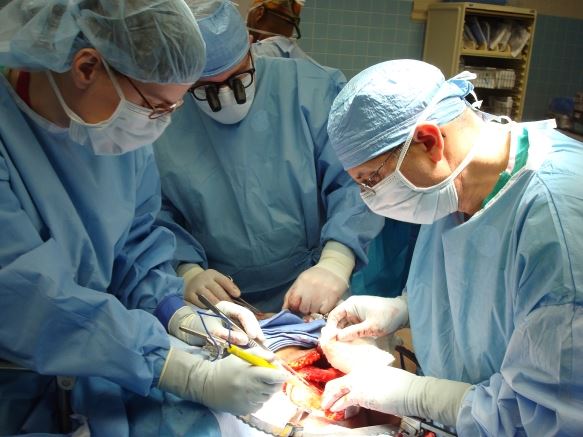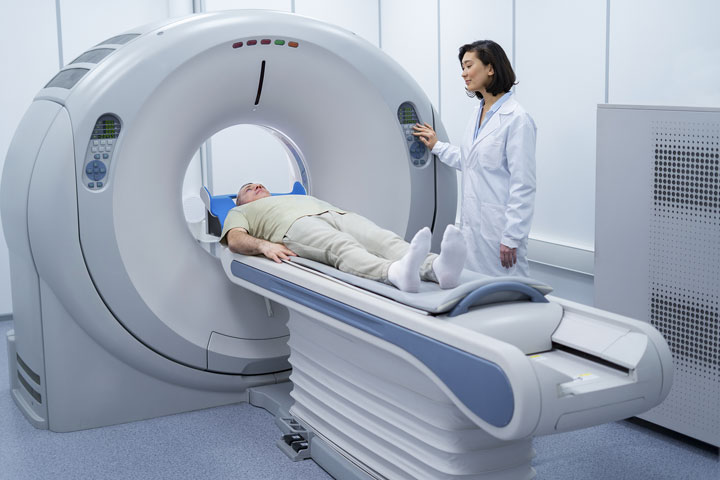Finding the right oncologist in Singapore can feel overwhelming, especially when you’re already dealing with health concerns.
This comprehensive guide will walk you through everything you need to know about oncology care in Singapore, from understanding different types of specialists to navigating costs and preparing for your first appointment.
Understanding Oncology: The Foundation of Cancer Care
Oncology represents the medical specialty dedicated to diagnosing, staging, and treating cancer.
The field encompasses cancer research, prevention strategies, treatment protocols, and long-term survivorship care.
In Singapore’s advanced healthcare system, oncologists serve as the primary coordinators of cancer care, working alongside multidisciplinary teams to provide comprehensive treatment.
The term “oncology” originates from the Greek word for tumor or mass, reflecting the field’s core focus on abnormal cell growth.
Modern oncology has evolved significantly with recent breakthroughs in genetics and molecular biology, transforming many previously untreatable cancers into manageable conditions.
This might help: The Ultimate Guide to Losing Weight in Singapore
Types of Oncologists and Their Specialized Roles
Singapore’s healthcare system features several distinct oncology specialties, each focusing on specific treatment approaches or patient populations.
Medical Oncologists

Medical oncologists form the cornerstone of most cancer care teams, specializing in non-surgical treatment approaches.
They utilize chemotherapy, targeted therapy, immunotherapy, and hormone therapy to combat cancer cells.
These specialists also manage treatment side effects, monitor patient progress throughout therapy, and coordinate long-term follow-up care.
Many medical oncologists in Singapore also hold dual certification in hematology, enabling them to treat blood disorders including anemia, sickle cell disease, and various forms of thrombosis.
This combined expertise proves particularly valuable when treating blood cancers like leukemia, lymphoma, and multiple myeloma.
Related article: Comprehensive Guide to Colonoscopy in Singapore
Surgical Oncologists

Surgical oncologists typically represent the first specialist patients encounter when cancer is suspected.
They perform diagnostic biopsies to confirm cancer presence and determine tumor characteristics.
During treatment, surgical oncologists remove tumors and surrounding tissues, often working in coordination with other specialists for comprehensive care.
These specialists complete extensive training, first becoming general surgeons through five-year residency programs before pursuing additional fellowship training in oncology and tumor removal techniques.
Their expertise proves crucial for early-stage cancers where surgical intervention offers the best chance for cure.
Radiation Oncologists

Radiation oncologists harness high-energy X-rays or proton beams to destroy cancer cells or shrink tumors.
They may use external beam radiation delivered by specialized machines or internal radiation therapy called brachytherapy, where radioactive materials are placed directly within or near the tumor.
Approximately half of all cancer patients receive radiation therapy at some point during their treatment journey.
Radiation can serve multiple purposes: shrinking tumors before surgery, eliminating remaining cancer cells after surgery, or providing palliative relief for advanced cancers.
You might like: Homeopathy in Singapore
Specialized Oncology Areas
Singapore’s healthcare system also offers highly specialized oncology services:
Gynecologic Oncologists focus exclusively on cancers affecting female reproductive organs, including cervical, ovarian, uterine, vaginal, and vulvar cancers.
Read more: Which Gynaecologist in Singapore Should You Consider?
Pediatric Oncologists specialize in childhood and adolescent cancers, which often differ significantly from adult malignancies in their biology and treatment approaches.
Neuro-Oncologists treat brain, spinal cord, and nervous system cancers, requiring specialized knowledge of neurological complications and treatments.
Thoracic Oncologists concentrate on chest area cancers, particularly lung and esophageal malignancies.
Urologic Oncologists handle genitourinary system cancers affecting the bladder, kidneys, prostate, and other reproductive organs.
Read more: Which Endocrinologist in Singapore Should You Consider?
When Should You Consult an Oncologist?
Understanding when to seek oncology consultation can significantly impact treatment outcomes. Several scenarios warrant immediate oncologist referral:
Confirmed Cancer Diagnosis:
Any confirmed cancer diagnosis requires prompt oncology evaluation to determine staging and develop comprehensive treatment plans.
Suspected Cancer:
When primary care physicians or other specialists suspect cancer based on symptoms, imaging, or laboratory results, oncology consultation helps confirm or rule out malignancy.
Blood Disorders:
Certain blood conditions that may or may not be cancerous often require hematologist-oncologist evaluation for proper diagnosis and management.
Second Opinion Requests:
Patients seeking second opinions on existing cancer diagnoses or treatment recommendations benefit from independent oncology assessment.
Family History Concerns:
Individuals with strong family histories of certain cancers may benefit from genetic counseling and screening recommendations from oncology specialists.
Read more: Health Screening in Singapore
Preparing for Your First Oncologist Appointment
Proper preparation for your initial oncology consultation can maximize the visit’s effectiveness and ensure comprehensive evaluation.
Essential Documents to Gather
Your oncologist will need comprehensive medical documentation spanning the past one to two years. This includes all laboratory results, imaging studies (X-rays, CT scans, MRIs), pathology reports, and previous medical records. These baseline studies enable comparison with current findings and help track disease progression or response to treatment.
Additional Testing Requirements
Most first visits involve electrocardiogram (ECG) testing to assess heart function before starting potentially cardiotoxic treatments.
Your oncologist may also order additional imaging studies or blood work to establish current disease status and overall health baseline.
Read more: Which Cardiologist in Singapore Should You Consider? (Sort by Reviews)
Questions to Prepare
Consider preparing specific questions about your symptoms, concerns about treatment options, potential side effects, and how cancer diagnosis might affect your daily life, work, and family responsibilities.
Comprehensive Treatment Options Available
Singapore’s oncology centers offer the full spectrum of modern cancer treatments, often combining multiple approaches for optimal outcomes.
Surgical Interventions
Surgery remains a cornerstone of cancer treatment, particularly for solid tumors detected in early stages.
Modern surgical techniques include minimally invasive procedures that reduce recovery time and complications while maintaining treatment effectiveness.
The type of anesthesia used depends on the procedure’s complexity and location:
- Local anesthesia for minor procedures affecting small areas
- Regional anesthesia for procedures involving specific body regions
- General anesthesia for major operations requiring complete unconsciousness
Systemic Medical Therapies
Chemotherapy utilizes powerful medications to destroy cancer cells throughout the body.
While effective, chemotherapy affects both cancerous and healthy rapidly dividing cells, leading to common side effects including nausea, fatigue, hair loss, and increased infection risk.
Targeted Therapy represents a more precise approach, using drugs designed to attack specific genetic mutations or proteins driving cancer growth.
These treatments often cause fewer side effects than traditional chemotherapy while maintaining effectiveness.
Immunotherapy harnesses the body’s immune system to fight cancer cells.
These treatments work by removing natural barriers that prevent immune cells from recognizing and attacking tumors.
Hormone Therapy blocks specific hormones that fuel certain cancer types, particularly breast, prostate, ovarian, and uterine cancers.
Radiation Therapy Approaches
Radiation therapy can be delivered through external beam machines or internal radioactive implants.
Treatment planning involves sophisticated imaging and computer modeling to maximize tumor targeting while minimizing healthy tissue exposure.
Advanced Treatment Modalities
Bone Marrow Transplantation replaces diseased bone marrow with healthy stem cells, either from the patient (autologous) or a compatible donor (allogeneic).
Radiofrequency Ablation uses electrical energy to heat and destroy cancer cells through precisely placed needles, particularly effective for certain liver and lung tumors.
Treatment Decision-Making and Cancer Staging
Oncologists use standardized staging systems to determine cancer extent and develop appropriate treatment plans. Staging typically ranges from Stage 1 (localized disease) to Stage 4 (distant metastases).
For early-stage cancers (Stages 1-3), surgical removal often remains the primary treatment goal, frequently combined with additional therapies to eliminate remaining cancer cells.
Stage 4 cancers, having spread beyond their original location, typically require systemic treatments focusing on disease control and symptom management.
Understanding Costs and Insurance Coverage
Cancer treatment costs in Singapore vary significantly based on treatment complexity, duration, and healthcare setting chosen.
| Service Type | Public Hospital Range | Private Hospital Range |
|---|---|---|
| Initial Consultation | $50 – $150 | $200 – $300 |
| Basic Surgery | $8,000 – $20,000 | $15,000 – $50,000 |
| Comprehensive Treatment | Varies by protocol | $30,000 – $100,000+ |
Insurance and Medisave Considerations
Most Singaporeans can utilize Medisave for cancer treatments in public hospitals, with additional insurance coverage often available for private care.
Insurance claim procedures vary by provider and policy type, with some requiring upfront payment and subsequent reimbursement, while others offer direct billing arrangements.
It’s crucial to verify coverage details with both your insurance provider and chosen healthcare facility before beginning treatment.
Some policies have specific requirements for pre-authorization or second opinions that could affect coverage eligibility.
Life Expectancy and Prognosis Factors
Cancer prognosis varies dramatically based on cancer type, stage at diagnosis, patient overall health, and response to treatment.
While Stage 4 cancer life expectancy can range from six months to several years, many factors influence individual outcomes.
Aggressive cancers like pancreatic and liver cancers often have shorter survival timelines, while breast cancers frequently allow for years of quality life with appropriate treatment.
Modern precision medicine approaches increasingly allow for more personalized prognosis estimates based on tumor genetic characteristics and individual patient factors.
Essential Lifestyle Modifications During Treatment
Cancer diagnosis necessitates significant lifestyle adjustments to optimize treatment effectiveness and overall wellbeing.
Nutritional Considerations
Proper nutrition becomes crucial during cancer treatment, with emphasis on consuming abundant fruits and vegetables while avoiding processed foods.
High-fiber foods support digestive health, though specific dietary recommendations may need adjustment based on treatment side effects.
Working with registered dietitians familiar with oncology nutrition can help develop personalized meal plans that address treatment-related challenges like nausea, taste changes, or swallowing difficulties.
Exercise and Physical Activity
Regular physical activity improves treatment tolerance, maintains muscle strength and flexibility, reduces fatigue, and supports positive mental outlook.
However, exercise programs must be tailored to individual cancer types, treatment protocols, and current fitness levels.
Consulting with healthcare providers before beginning exercise programs ensures safety and appropriateness, particularly for patients with certain conditions that might affect exercise capacity or increase injury risk.
Emotional and Psychological Support
Cancer diagnosis profoundly impacts mental health, often triggering feelings of uncertainty, fear, and loss of control.
Maintaining open communication with healthcare teams, joining support groups, and considering professional counseling all contribute to emotional wellbeing during treatment.
Many Singapore hospitals offer comprehensive support services including social workers, counselors, and peer support programs specifically designed for cancer patients and their families.
Complementary Therapies
Music therapy, guided imagery, and relaxation techniques can provide valuable stress relief and emotional support during treatment.
These approaches help reduce anxiety, manage pain, and improve overall quality of life when used alongside conventional medical treatments.
Finding the Right Oncologist in Singapore
Seeking Referrals and Recommendations
Start by requesting referrals from your primary care physician, who likely has established relationships with reputable oncologists and understands your medical history.
Family members, friends, or other healthcare providers who have experience with oncology care can also provide valuable insights.
Researching Credentials and Experience
Investigate potential oncologists’ educational backgrounds, board certifications, subspecialty training, and experience treating your specific cancer type.
Many hospitals and medical centers provide detailed physician profiles on their websites.
Evaluating Hospital Affiliations
Consider the quality and reputation of hospitals where potential oncologists practice, as institutional resources, support services, and multidisciplinary team availability can significantly impact care quality.
Assessing Communication Style
Choose an oncologist who communicates clearly, listens to your concerns, answers questions thoroughly, and involves you in treatment decision-making.
Effective communication becomes crucial during extended treatment relationships.
Post-Treatment Care and Long-Term Monitoring
Cancer treatment completion marks the beginning of survivorship care, involving regular monitoring for cancer recurrence and managing long-term treatment effects.
Follow-Up Scheduling
Follow-up visit frequency depends on cancer type, treatment received, and individual risk factors.
Initially, appointments may occur every three to six months, gradually extending to annual visits as time progresses without recurrence.
Surveillance Testing
Ongoing monitoring may include periodic imaging studies, blood tests, and physical examinations designed to detect early signs of cancer recurrence when treatment options remain most effective.
Managing Long-Term Effects
Some cancer treatments can cause late effects appearing months or years after treatment completion.
Regular monitoring helps identify and address these issues promptly, maintaining quality of life and overall health.
Comprehensive FAQ Section
What exactly does an oncologist do?
An oncologist specializes in diagnosing, treating, and managing cancer throughout the entire disease course.
They confirm initial diagnoses, explain cancer stages, provide comprehensive treatment options, oversee care coordination, manage treatment side effects, and provide long-term survivorship care.
Oncologists also conduct research and participate in clinical trials to advance cancer treatment options.
How do I know if I need to see an oncologist?
You should see an oncologist if you have been diagnosed with cancer, if your doctor suspects you might have cancer based on symptoms or test results, if you want a second opinion on a cancer diagnosis, or if you have blood disorders that may be cancerous.
Additionally, people with strong family histories of certain cancers might benefit from oncology consultation for genetic counseling and screening recommendations.
What should I bring to my first oncologist appointment?
Bring all medical records from the past one to two years, including laboratory results, imaging studies (X-rays, CT scans, MRIs), pathology reports, and previous medical records.
Also prepare a list of current medications, family medical history, and specific questions about your condition.
Having insurance information and identification readily available will streamline the registration process.
How long does the first oncologist appointment typically take?
Initial oncology consultations typically last between two to three hours.
This extended timeframe allows for comprehensive medical history review, physical examination, discussion of test results, explanation of diagnosis and staging, review of treatment options, and answering your questions.
You may also meet with other team members like nurses, social workers, or counselors during this visit.
What are the different types of oncologists and their specialties?
The main types include medical oncologists (who use medications like chemotherapy and targeted therapy), surgical oncologists (who perform cancer surgeries and biopsies), and radiation oncologists (who use radiation therapy).
Subspecialists include gynecologic oncologists (women’s reproductive cancers), pediatric oncologists (childhood cancers), neuro-oncologists (brain and nervous system cancers), and hematologist-oncologists (blood cancers and disorders).
Does seeing an oncologist automatically mean I have cancer?
No, seeing an oncologist does not automatically mean you have cancer.
Oncologists are often consulted when cancer is suspected but not yet confirmed, for second opinions on existing diagnoses, or for managing blood disorders that may or may not be cancerous.
They also provide genetic counseling and screening recommendations for high-risk individuals with family histories of cancer.
What questions should I ask my oncologist during my first visit?
Important questions include:
What type of cancer do I have and what stage is it?
What are my treatment options and their potential side effects?
What is my prognosis and survival rate?
How long will treatment take?
Will I be able to work during treatment?
Are there clinical trials available?
How often will I need follow-up visits?
What lifestyle changes should I make?
How will this affect my fertility or family planning?
How much does it cost to see an oncologist in Singapore?
Consultation costs range from $50-$150 in public hospitals to $200-$300 in private settings.
Treatment costs vary significantly based on cancer type and treatment complexity, ranging from $8,000-$20,000 for basic procedures in public hospitals to $15,000-$50,000 or more in private facilities.
Medisave can often be used for public hospital treatments, while private insurance may cover additional costs.
Can I use Medisave and insurance for cancer treatment in Singapore?
Yes, Medisave can typically be used for cancer treatments in public hospitals and some private facilities.
Private insurance coverage varies by policy, with some offering direct billing while others require upfront payment and reimbursement.
It’s essential to verify coverage details with both your insurance provider and healthcare facility before beginning treatment, as some policies require pre-authorization.
How do oncologists determine if a tumor is cancerous?
Oncologists use pathological examination, which involves removing tissue samples through biopsy procedures and examining them under microscopes.
This process determines whether cells are malignant (cancerous) or benign (non-cancerous), identifies the specific cancer type, and provides information about genetic characteristics that guide treatment decisions.
Additional imaging and blood tests may supplement biopsy findings.
What are the most common cancer treatments available in Singapore?
Common treatments include surgery (removing tumors and affected tissues), chemotherapy (using medications to destroy cancer cells), radiation therapy (using high-energy beams to kill cancer cells), targeted therapy (attacking specific cancer-driving proteins), immunotherapy (boosting immune system response), hormone therapy (blocking cancer-fueling hormones), and bone marrow transplants for certain blood cancers.
How often will I need to see my oncologist during treatment?
Visit frequency depends on your cancer type, treatment protocol, and individual response to therapy.
During active treatment, appointments may occur weekly or every few weeks for monitoring and medication administration.
After treatment completion, follow-up visits typically start every three to six months, gradually extending to annual visits as time progresses without cancer recurrence.
What side effects should I expect from cancer treatment?
Side effects vary by treatment type but commonly include fatigue, nausea, hair loss, increased infection risk, mouth sores, changes in appetite, and skin changes.
Modern supportive care medications can effectively manage many side effects.
Your oncologist will discuss specific side effects related to your treatment plan and provide strategies for prevention and management.
How do I find the best oncologist for my specific cancer type?
Start with referrals from your primary care physician, research oncologists’ credentials and subspecialty training, consider hospital affiliations and available resources, read patient reviews, and evaluate communication styles during consultations.
Look for board-certified oncologists with specific experience treating your cancer type, and don’t hesitate to seek second opinions to ensure you’re comfortable with your chosen provider.
What lifestyle changes should I make after cancer diagnosis?
Important changes include adopting a nutritious diet rich in fruits and vegetables while avoiding processed foods, maintaining appropriate physical activity as approved by your healthcare team, managing stress through relaxation techniques or counseling, avoiding tobacco and limiting alcohol consumption, getting adequate sleep, and maintaining regular follow-up care.
Your oncologist can provide specific recommendations based on your treatment plan.
When should I call my oncologist between appointments?
Contact your oncologist immediately for fever over 100.4°F (38°C), new or worsening symptoms, severe pain not controlled by prescribed medications, signs of infection, unusual bleeding or bruising, persistent nausea or vomiting preventing food intake, or any symptoms that cause significant concern.
Your healthcare team will provide specific guidelines for when to call based on your treatment plan.
Are there support services available for cancer patients in Singapore?
Yes, Singapore hospitals offer comprehensive support services including social workers, counselors, nutritionists, support groups, financial counselors, and complementary therapy programs.
Many facilities provide patient navigation services to help coordinate care and access resources.
Online and community-based support groups also offer valuable peer connections and emotional support throughout treatment and recovery.
What happens if my cancer comes back after treatment?
Cancer recurrence requires immediate oncology evaluation to determine the extent and location of returning disease.
Treatment options for recurrent cancer may include different therapies than initially used, clinical trials of experimental treatments, or palliative care focused on symptom management and quality of life.
Early detection through regular follow-up care often provides more treatment options and better outcomes.
Can I get a second opinion from another oncologist?
Absolutely, seeking second opinions is common and encouraged in oncology care.
Second opinions can confirm diagnoses, provide alternative treatment perspectives, or offer access to clinical trials not available elsewhere.
Most oncologists support patients seeking additional consultations, and many insurance plans cover second opinion costs.
Bringing comprehensive medical records facilitates efficient second opinion evaluations.

